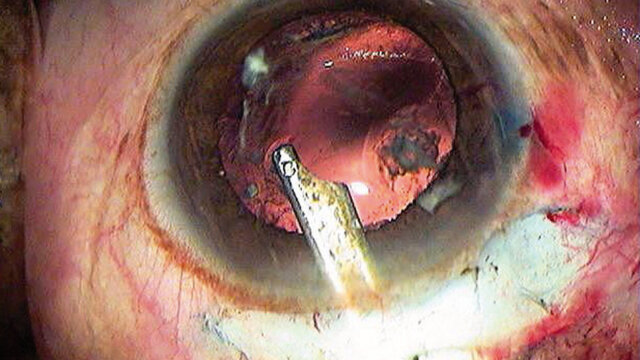FTC disclaimer: This post may contains affiliate links and we will be compensated if you click on a link and make a purchase.
What is fish oil? You’ve heard a lot about it, especially its health benefits, so you may be wondering, “What is fish oil, anyway?”
Fish oil is an incredible nutrient derived from fatty fish such as salmon and tuna that promote heart and brain health and fight multiple diseases, mainly through the Omega 3 fatty acids.
Why is it good to take fish oil?
Fish oil is highly advantageous to your body because of omega-3 fatty acids; DHA (docosahexaenoic acid) and EPA (eicosapentaenoic acid).
Omega-3 fatty acids EPA and DHA are actually “essential fatty acids” that your body requires but cannot produce. You can take essential fatty acids through your food or a fish oil supplement.
The benefits of taking the best fish oil pills are numerous. A small quantity of fish oil can cause wonders for your immune system every day.
Fish oil can be beneficial because of the following reasons:
- Reduces the risk of heart failure
- Reduces the risk of brain strokes
- Lowers triglyceride levels in the blood
- Impedes the manufacture of atherosclerotic plaques
- Improves rheumatoid arthritis
- Reduces the chances of a frantic pulse
- Lowers blood pressure
- It prevents Alzheimer’s disease
- Retards cancer
- Reduces diabetes
- Cures depression
- Cures ADHD
Understanding Omega-3 fatty acids EPA and DHA
There are two types of omega-3 fatty acids in fish oil: EPA and DHA.
Function of EPA
EPA, short for eicosapentaenoic acid, is an essential nutrient that supports eye and brain function.
It is also helpful in treating OCD, schizophrenia, Huntington’s, M.E., bipolar disorder, chronic fatigue syndrome, and depression.
Function of DHA
DHA is essential for the growth and development of the brain in infants. It maintains the normal functioning of the brain in adults.
Moreover, regular intakes of DHA will improve learning, writing, and spelling skills. Additionally, DHA is beneficial during pregnancy and early childhood.
Effects of EPA deficiency
Low levels of EPA are responsible for the phospholipids layers in the brain hardening up. Further, it slows down the signaling power of the cells.
As a result, the communication between the cells decreases, which leads to depression.
A regular intake of EPA in the form of fish oil pills will drive away depression and reverse the harmful effects of the phospholipids layers.
Further, the neurotransmitters get perked up and send electrical messages to the brain.
Children are greatly affected by the absence of EPA in their bodies. EPA deficiency in children will lead to behavioral problems and loss of concentration.
Moreover, EPA is also necessary for blood clotting and other functions of the artery. It also regulates triglycerides in our bodies.
Effect of DHA deficiency
The deficiency of DHA can lead to the following health conditions:
- Poor memory
- Mood swings
- Depression
- Blood circulation
- Fatigue
- Heart problem
- Dry skin problem.
Since the EPA and DHA are found in fish oil, you can take the required amount of fish oil pills every day to supplement your diet. In this way, you can achieve a healthy body and a healthy mind.
There are many other advantages of taking fish oil pills. It helps a person to concentrate better.
Nutrition experts and health coaches also recommend it. You can lose the extra fat and develop good muscles with fish oil pills. It adds to the overall health benefits of any individual.
Let’s look into some of the significant health benefits of fish oil because of Omega-3 fatty acids, especially eicosapentaenoic acid (EPA) and docosahexaenoic acid (DHA).
What Is Fish Oil Used To Treat?
Promote Heart Health
Fish oil, very high in Omega-3 fats, has been shown to help preserve and enhance heart health.
Clinical studies suggest that EPA and DHA help reduce high cholesterol and high blood pressure. And fish oil lowers triglycerides, which are fats in the blood.
Fish oil lowers the risk of death, heart attack, stroke, and abnormal heart rhythms in people who have already had a heart attack.
Moreover, studies have revealed that fish oil helps prevents and treat atherosclerosis, which is the hardening of the arteries, by slowing the development of plaque and blood clots which can clog arteries.
Helps in Brain Health
Fish oil is also used for brain health because deficiencies in Omega-3 fats have been linked to various brain health.
Scientific evidence has shown that the deficiency of Omega-3 fatty acids can contribute to the development of depression and anxiety. Also, clinical trials evidence has suggested that Omega-3 fatty acids help prevent and treat postpartum depression.
Another study has established that deficiency of Omega-3 fatty acids has an indirect effect on mood swings.
Moreover, several studies suggested that Omega-3 fatty acids intake may prevent bipolar disorder.
However, recent studies have also highlighted that Omega-3 fatty acids have a beneficial effect on Alzheimer’s disease, attention deficit hyperactivity disorder (ADHD), and attention deficit disorder (ADD).
Effects on Mental Health
Several studies have shown that fish oil assists in relieving depression, sadness, anxiety, mental fatigue, suicidal thoughts, and nervous disorders.
Studies have been performed in various circumstances that have provided evidence that diets with omega-3 fatty acids have offered mood-stabilizing benefits and a low incidence of depression.
An interesting study has also shown that when including Omega-3 in prisoners’ diet, there was a drop in homicides and assault rates.
Support Pregnant and Nursing Mothers
Fish supplements are perfect for pregnant and nursing mothers. Expectant or nursing mothers use fish oil because of the importance of DHA and EPA for the fetus’ brain to develop correctly.
Sometimes doctors prohibit seafood consumption during pregnancy due to some medical conditions. But, the benefits can be achieved by taking fish oil supplements.
According to research studies, fish oil significantly impacts the happiness of a baby, the birth weight, taking pregnancy to term, and even the child’s brain function.
Several studies have shown that Omega 3 is also great for improving memory, recall, and focus in adults and teenagers.
Decreased Pain and Inflammation
Studies have proven that Omega-3 has a positive response throughout your body’s inflammatory response.
According to studies, Omega-3 fatty acids help regulate the inflammation cycle within your body, relieving pain in sufferers of arthritis and cystitis.
This is also an excellent solution for those who suffer from poor blood circulation as it will assist the blood flowing through the body’s limbs and reduce triglyceride levels.
Effective for Cancer
For patients suffering from prostate, breast, and colon cancer, the Omega-3 acids have proven to slow down the progression of cancer growth.
Several studies have shown that slower progression increases the chances of survival after diagnosis and is also a great source of anti-cancer treatment.
Fish oils will not eliminate the need for treatment in those currently diagnosed with cancer, but fish oil will reduce negative cellular growth.
Moreover, fish oil is also a great proactive solution for those taking steps to reduce their chances of having healthy cells turn to cancerous cells.
May help in Weight Loss
Aside from keeping you healthy, fish oils can aid in weight loss. For those trying to lose weight in the most recommended way, diet and exercise will help improve the efficacy of exercise to reduce your body mass.
Studies have shown those who consumed a fish oil diet rapidly lost weight.
Even further, combining the fish oil diet with a well-developed exercise plan will positively affect the body composition of patients.
Support Vision Problems
Fish oils are well-known solutions for vision problems. While they will not eliminate the need for glasses in severe cases, they will improve vision and help avoid age-related macular degeneration.
The National Eye Institute has conducted numerous studies evaluating the benefit of fish oils in macular degeneration treatments.
These studies have provided patients and doctors with supportive solid scientific evidence that fish oil acids positively affect eye care.
This supplement will prevent declining eyesight, but it will also reduce redness and dryness in the eyes.
Effective on IBD, Arthritis, Crohn’s Disease, Asthma, skin disorders
Studies have suggested that fish oil is also used to benefit people with arthritis, Crohn’s disease & other inflammatory bowel disorders (IBDs).
Moreover, studies highlighted that fish oil, which has anti-inflammatory properties, is also used to reduce the symptoms of psoriasis, acne, and other skin disorders which result from inflammation.
Studies have also shown that fish oil can benefit diabetes, lupus, osteoporosis, asthma, and macular degeneration, although more study is needed.
Fish oil dosage
The amount of fish oil required daily depends on the condition of each individual; therefore, only your doctor can give you an accurate number.
But there is a general recommendation healthy adults can follow. The recommendation suggests taking from 300 to 500 mg of EPA and DHA fatty acids combined plus an extra 800 to 110 mg of ALA each day.
The Omega-3 EPA and DHA recommendation can be fulfilled with one soft gel capsule of fish oil, containing 1 gram (1000 mg of fish oil) on average.
Such capsule provides 180 mg of EPA and 120 mg of DHA, which results in 300 mg of Omega-3s.
However, the amounts may vary from product to product, and you need to look at the amounts of EPA and DHA they contain. Then by adding them together, make sure you receive 300 mg in one portion.
Basic Dosage Requirements
So, what is the proper fish oil dosage for a healthy adult?
Much, of course, depends on the concentration of EPA and DHA in the product.
However, typically, two capsules, which consist of 1,000 mg of fish oil, should suffice.
Read the label of the product you buy to ascertain the exact recommendation.
Dosage for children
For children, the dosage, of course, is lower.
For one to three-year-olds, a dose of 0.7 grams should be enough.
If your child is between 4 to 8 years of age, give him 0.9 grams of the supplement.
And, for children 9 to 13 years old, then 1.2 grams of fish oil is adequate.
Dosage Suggestions for Various Conditions
Skin problem fish oil dosage
Concerning skincare, take 1,000 mg. per day of the supplement before you eat.
Older people should take 1,000 mg. twice a day for optimum skin health.
Heart problems fish oil dosage
If you have specific heart problems, then requirements differ here too.
2,000 mg of the supplement should be taken three times a day for angina sufferers.
Reduce the quantity to 1,000 mg. three times a day if you have arrhythmia.
However, people with congestive heart disorder should not take such large quantities due to toxicity concerns.
Fish oil dosage for Asthma and Diabetes
People with Asthma can obtain relief by taking fish oil soft gels of 1,000 mg. 3 times a day.
Take the oil in capsule form, or 2,000 mg. morning, noon and night if you have diabetes.
And people with cancer even four times the amount of Omega-3s.
While fish oil is rich in EPA and DHA fatty acids, offering up to 1000 mg in each capsule, it is also a potent Vitamin A and D source.
These Vitamins are fat-soluble, which might become toxic if taken in large amounts.
There is a unique option for vegans who do not eat fish products yet want to derive similar benefits: vegetarian DHA supplements obtained from algae or flaxseed oil.
Omega-3 fish oil deficiency
Are you getting enough Omega 3 in your diet? The benefits of Omega-3 are well known, but the signs of deficiency are not.
Research has shown that 95% of Americans have Omega-3 deficiencies due to not eating enough foods high in this nutrient.
Unfortunately, deficiencies resulting from a low Omega-3 diet are vague and overlooked by both patients and doctors.
Many signs let you know you aren’t getting enough of this essential fatty acid in your diet.
The most common signs that you are not getting enough Omega-3 are:
- Fatigue
- Dry, itchy skin
- Acne
- Brittle nails
- Brittle hair that breaks easily
- Constipation
- Frequent colds
- Depression
- Poor concentration
- Lack of physical endurance
- Joint paint
If you suffer from these symptoms, you could have an Omega-3 deficiency. For optimal health, researchers recommend 3 grams of Omega-3 daily.
You can quickly get this amount by adding flaxseeds, salmon, marine foods, oils, and walnuts to the foods you eat.
Two tablespoons of flaxseeds or four oz. of salmon will take care of your requirements for the day.
Changing your diet with healthy foods is always the best way to improve your health, but if this doesn’t appeal to you or you would like the convenience, try supplements.
Why are Fish Oil Supplements Better Options?
Environmental pollution has affected almost everything on the earth.
Fish available from the sea are often found to contain high levels of mercury and other harmful contaminants.
Even the FDA has warned that taking too much fish can increase your body’s risk of high mercury levels.
On the contrary, the fish oil supplements can be a safer option to get the required Omega-3 Fatty acids as the high-quality fish oil supplements are purified capsules.
When we take fish oil for some specific need of our body, we have to take it in a balanced amount to obtain positive results.
Fish oil capsules are manufactured with the proper balance of Omega-3, which is essential for our body.
However, if you want to get the desired result, consult your physician about the dosages.
How Is Fish Oil Extracted From Fish To Make Sure It Is Pure?
Healthy fish oil is not extracted from just any fish but fatty fish such as salmon, tuna, mackerel, lake trout, herring, halibut, sardines, and Hoki.
In most instances, extraction is a three-step process.
First, the fishes are steam-heated at temperatures up to 100 degrees Celcius. This makes the fish sterile and alters the cell membranes to aid in extracting the oil.
Next, the fish are pressed to remove the liquid from the raw fish.
Finally, the liquid is put through a separator that extracts the mixture’s oil.
How to choose fish oil Omega-3 supplements?
If you choose to use Omega-3 supplements, buy those high in quality.
Remember that these oils are susceptible and can be damaged by heat, light, and oxygen.
Choose a certified organic product that is refrigerated and packaged in a dark brown or green glass jar, and be sure to store the product in your refrigerator or freezer.
It is critically important that the fish oil be pure and free of undesirable materials such as heavy metals, PCBs (polychlorinated biphenyls, man-made chemicals that have been banned but still exist in the environment), and dioxins.
There are at least four sets of international standards for fish oil purity;
- International Fish Oil Standards (IFOS)
- Council For Responsible Nutrition (CRN) standards
- European Pharmacopoeia standards
- Norwegian Medicinal Standard.
The best fish oil producers exceed these purity standards.
Fish oil side effects
Fish oil is the most popular and essential health supplement; despite this, there are still some concerns about possible fish oil side effects.
Flavor can be an issue.
People of a certain age may have unpleasant memories of a daily dose of cod liver oil.
Both its taste and texture made it an ordeal to take. Fish oil capsules have done much to alleviate this problem.
But it depends on which products you buy. If there is a long delay between the catching and processing of the fish, it can result in the rancidity of the oil.
This might cause those unpleasant fishy burps later on. But with better quality, fresh products, this need not be an issue.
Increase in bleeding
A more serious possible side effect is a potential increase in bleeding.
Fish oil can thin the blood, incidentally one of its benefits.
Can it become a problem? If you are already taking a blood-thinning medication, it could be.
In that case, it would certainly be wise to consult your doctor before using these supplements.
Contamination issue
The most severe possible side effect comes from the contamination of fish oil.
Pollution of the oceans has led to a build-up of toxins in the bodies of the fish that live in that environment.
Poor processing and quality control can lead to heavy metals in fish oil supplements.
The heavy metals that can be found in fish oil are:
- Methylmercury
- Lead
- Selenium
- Arsenic
- Cadmium
According to research studies, it was found that Mercury poisoning may be a critical factor in the development of neuropsychiatric conditions, and Lead poisoning may affect the nervous system.
Some leading brands have been found to contain varying levels of these contaminants, putting doubts into the minds of previously enthusiastic consumers.
A quality fish oil supplement is the best way to get the vital nutrients we require and avoid the pitfalls of contaminated fish. It all comes down to choosing a supplier you can trust.
Conclusion
The health benefits of fish oil are no more mysterious, which is why the consumption of fish oil is increasing among health-conscious individuals.
Whether a cardiovascular disease or neurological disorder, doctors say fish oil and its essential component, Omega-3, prevent the diseases.
Taking fish oil and a proper diet and exercise can also lower cholesterol levels.
If you have any of the signs of Omega-3 deficiency, you might want to improve your diet by including foods high in this nutrient or taking supplements.
Discuss the symptoms you are having with your family doctor and get their recommendations.








